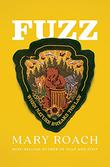Episode 226: Leigh Patel, author of No Study Without Struggle: Confronting Settler Colonialism in Higher Education (Beacon Press, July 20), on having an ambivalent relationship to one’s profession/subject matter:
 “It might be a really logical thing for a reader of this book or of other works by other people who have an ambivalent relationship to formal education to ask, well, why then are you a professor, are you a teacher? And my simple response is always this: Learning is so much bigger than all of these projects. The project of slavery, the project of settler colonialism, the project of reproducing social hierarchies. Learning is bigger, and I simply refuse to cede it to these structures.”
“It might be a really logical thing for a reader of this book or of other works by other people who have an ambivalent relationship to formal education to ask, well, why then are you a professor, are you a teacher? And my simple response is always this: Learning is so much bigger than all of these projects. The project of slavery, the project of settler colonialism, the project of reproducing social hierarchies. Learning is bigger, and I simply refuse to cede it to these structures.”
Episode 228: Kaveh Akbar, author of Pilgrim Bell (Graywolf, Aug. 3), on how he responds to the notion of himself as an authority in poetry:
“Oh, I would never posit—I would never situate myself as anything of an authority. I’m just as confused as anyone. I mean, I spend a lot of time thinking about this stuff, and writing about this stuff, and reading about this stuff. And I’ve spent the last half, more than half, of my life now, since I was a teenager, working to get to a point where the universe would just let me be only a poet. But that’s more about late capitalism than anything else: figuring out how to do the thing that you do for free but get the world to pay you for it. And so I’ve jumped through the requisite hoops and degrees, et cetera, to be able to have gainful employ. But I’m just as confused and baffled and fevered by this stuff as I was when I first discovered it.”
 Episode 229: Veronica Chambers, author of Call and Response: The Story of Black Lives Matter (Versify/HarperCollins, Aug. 17), on the key to writing a book:
Episode 229: Veronica Chambers, author of Call and Response: The Story of Black Lives Matter (Versify/HarperCollins, Aug. 17), on the key to writing a book:
“I think a lot about books as architectural. People always say, how do you write so many books? I got stuck or I got afraid—or whatever. And I’m like, every book has a structure. It’s like Legos. Decide the structure. It doesn’t mean you're going to write a great book or an important book, but you can write a book once you decide the structure.”
 Episode 233: Mary Roach, author of Fuzz: When Nature Breaks the Law (Norton, Sept. 14), on whether she prefers her books with four-letter titles (Bonk, Gulp, Fuzz) to her books with five-letter titles (Stiff, Spook, Grunt):
Episode 233: Mary Roach, author of Fuzz: When Nature Breaks the Law (Norton, Sept. 14), on whether she prefers her books with four-letter titles (Bonk, Gulp, Fuzz) to her books with five-letter titles (Stiff, Spook, Grunt):
“Oh wow, that’s a great question. People asked me about the number of words in the title, but nobody's ever asked me about the number of letters. Oh my God, you ask the questions, woman! Let’s see, Stiff, Spook, Grunt….I’m gonna have to go with: I don’t care. I totally don’t give a shit.”
Editor at large Megan Labrise is the host of the Fully Booked podcast. Find new episodes every Tuesday on Apple Podcasts and Spotify or at kirkusreviews.com/podcast.



































